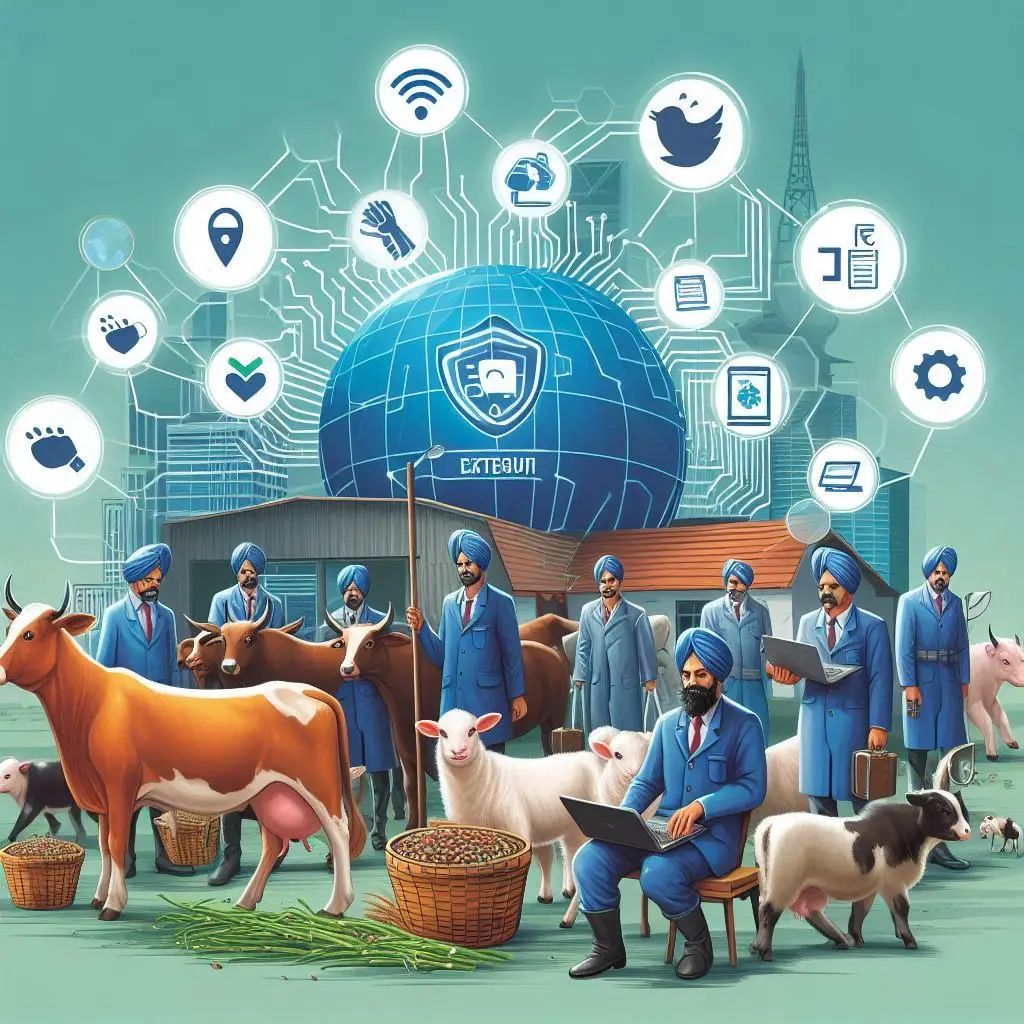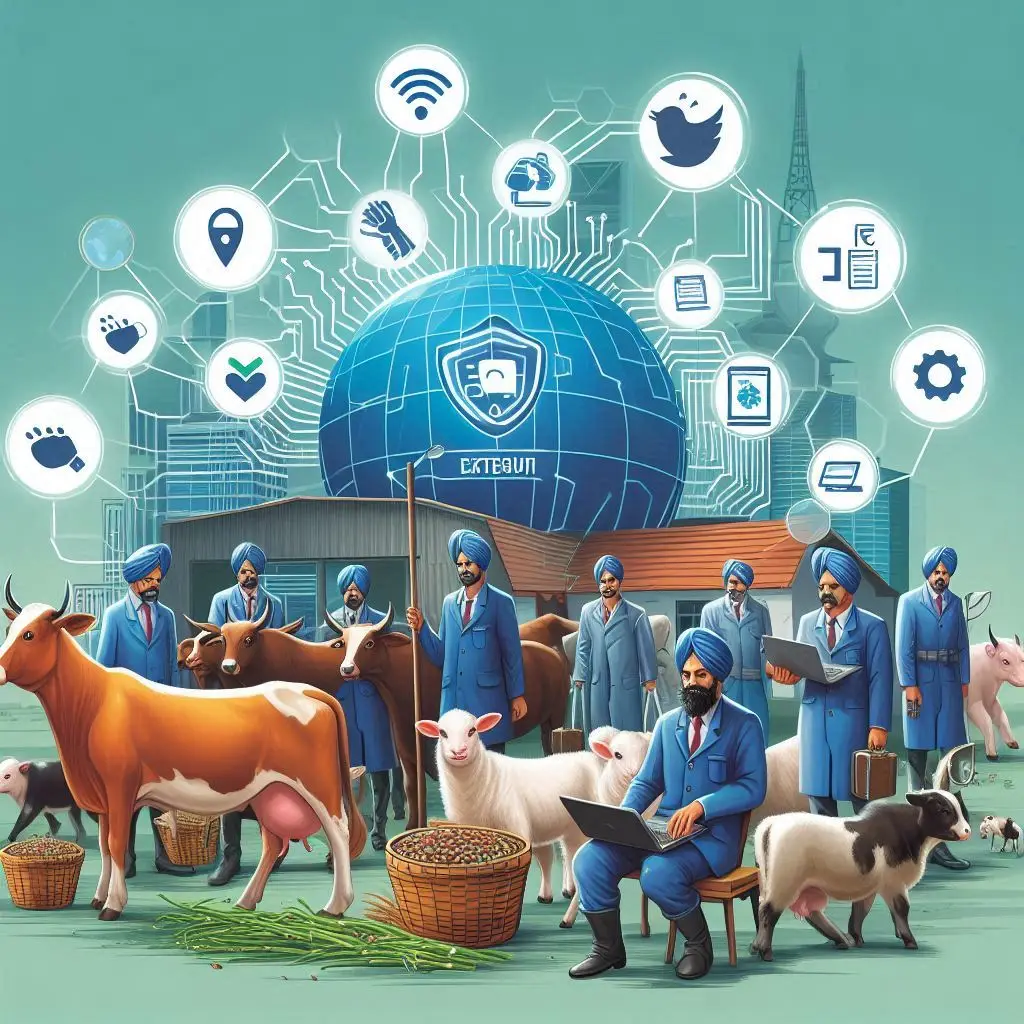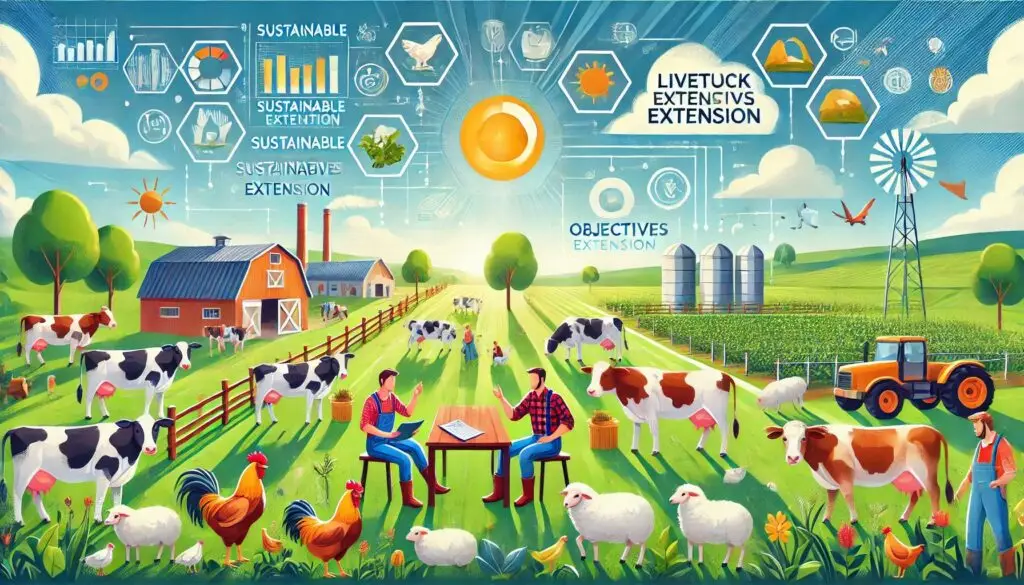Cyber extension and its application

Cyber extension is a transformative approach to agricultural extension that utilizes digital technologies to enhance the dissemination of information and knowledge among farmers. This method is particularly relevant in the context of animal husbandry in India, where the sector plays a vital role in the rural economy and contributes significantly to agricultural GDP. This article will explore the concept of cyber extension, its applications in animal husbandry, its importance in India, and the challenges and opportunities it presents.
What is Cyber Extension?
Cyber extension refers to the use of information and communication technologies (ICT) to improve agricultural extension services. It aims to provide farmers with timely, relevant, and accurate information through various digital platforms, including mobile apps, social media, and online resources. By overcoming the limitations of traditional extension methods, cyber extension enhances the efficiency and effectiveness of knowledge dissemination.
Key Features of Cyber Extension
- Real-Time Information: Cyber extension provides farmers with access to real-time data on market prices, weather forecasts, and best practices in animal husbandry.
- Interactive Platforms: Farmers can engage with experts and peers through forums, webinars, and social media, fostering a community of knowledge sharing.
- Accessibility: Digital platforms break geographical barriers, allowing farmers in remote areas to access vital information that was previously unavailable.
Applications of Cyber Extension in Animal Husbandry
In India, the application of cyber extension in animal husbandry has gained momentum, with various initiatives aimed at improving livestock management and productivity. Here are some key applications:
1. Information Dissemination
Cyber extension provides farmers with crucial information on livestock management, health care, feeding practices, and disease control. This information is accessible through mobile apps and websites, enabling farmers to make informed decisions.
2. Market Access
Farmers can utilize online marketplaces and social media to promote their products and connect with buyers directly. This reduces reliance on intermediaries and increases profit margins.
3. Training and Capacity Building
Online training programs and webinars help farmers enhance their skills and knowledge in animal husbandry. These programs cover various topics, including breeding techniques, nutrition, and disease management.
4. Advisory Services
Farmers can access expert advice through digital platforms, enabling them to address specific challenges in their livestock operations. This personalized support enhances productivity and animal welfare.
Importance of Cyber Extension in the Indian Context
The significance of cyber extension in India cannot be overstated, especially in the realm of animal husbandry. Here are some reasons why it is crucial:
1. Economic Contribution
Animal husbandry contributes approximately 25% to India’s agricultural GDP. Enhancing productivity through cyber extension can lead to increased income for farmers and improved livelihoods.
2. Food Security
With the growing population, there is an increasing demand for animal products. Cyber extension can help optimize livestock production, contributing to food security in the country.
3. Sustainable Practices
Cyber extension promotes sustainable farming practices by providing information on resource management, animal health, and environmental conservation. This ensures the long-term viability of the sector.
4. Empowerment of Farmers
By providing access to information and resources, cyber extension empowers farmers to take charge of their operations. This leads to better decision-making and increased confidence in their abilities.
Successful Models of Cyber Extension in India
Several successful models of cyber extension have been implemented in India, showcasing its potential in animal husbandry. Here are a few notable examples:
1. Sustainable Information Resource Centre (SIRC)
Developed by the National Institute of Agricultural Extension Management (MANAGE), SIRC aims to provide comprehensive information on livestock management. It offers resources on feeding, housing, and disease management, helping farmers make informed decisions.
2. Gyandoot Project
This initiative in Madhya Pradesh connects farmers to information through a rural intranet. It provides access to agricultural information, market prices, and government schemes, empowering farmers in remote areas.
3. Warana Wired Village Project
In Maharashtra, this project connects farmers to the internet, enabling them to access agricultural resources and market information. It has significantly improved the livelihoods of farmers in the region.
Challenges of Cyber Extension
Despite its potential, cyber extension faces several challenges that need to be addressed:
1. Digital Divide
Access to technology remains a significant barrier for many farmers, particularly in rural areas. Efforts must be made to ensure equitable access to digital tools and resources.
2. Training and Literacy
Many farmers lack the necessary skills to utilize digital platforms effectively. Training programs are essential to enhance digital literacy and ensure that farmers can make the most of cyber extension services.
3. Infrastructure Limitations
Inadequate internet connectivity and electricity supply in rural areas can hinder the effectiveness of cyber extension. Investments in infrastructure are crucial for the success of these initiatives.
4. Data Privacy and Security
As farmers increasingly rely on digital platforms, concerns about data privacy and security arise. Robust policies and regulations must be established to protect farmers’ information.
Future Prospects of Cyber Extension in Animal Husbandry
The future of cyber extension in animal husbandry looks promising, with several opportunities for growth and development:
1. Integration of Emerging Technologies
The incorporation of technologies like artificial intelligence, machine learning, and big data analytics can enhance the effectiveness of cyber extension. These technologies can provide personalized recommendations and insights to farmers.
2. Collaboration with Private Sector
Partnerships with private companies can lead to the development of innovative solutions and platforms that cater to the specific needs of farmers in animal husbandry.
3. Policy Support
Government policies that promote the use of ICT in agriculture can create a conducive environment for the growth of cyber extension. Supportive policies can enhance investments in technology and infrastructure.
4. Community Engagement
Engaging farmers in the development and implementation of cyber extension services can ensure that these initiatives meet their needs. Feedback mechanisms can help refine and improve services over time.
Conclusion
Cyber extension represents a significant advancement in agricultural extension services, particularly in the field of animal husbandry. Its ability to provide timely, accurate, and accessible information is vital for enhancing productivity, profitability, and sustainability in the Indian agricultural landscape. By addressing the challenges and leveraging the opportunities, cyber extension can play a crucial role in transforming the livelihoods of millions of farmers across India.
For more pearls of Vets Wisdom:
https://wiseias.com/partitioning-of-food-energy-within-animals/






Responses